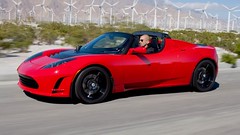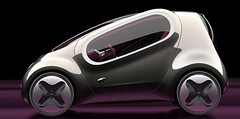
A recent Gizmag article summarized the findings of a life cycle assessment of the lithium-ion batteries often used in electric vehicles. Scientists from the Swiss Federal Laboratories for Materials Testing and Research tracked the environmental footprint of Li-ion batteries, including the charging cycle when tied to a typical European electricity mix, with generally positive findings.
The study shows that the electric car’s Li-ion battery drive is in fact only a moderate environmental burden. At most only 15 per cent of the total burden can be ascribed to the battery (including its manufacture, maintenance and disposal). Half of this figure, that is about 7.5 per cent of the total environmental burden, occurs during the refining and manufacture of the battery’s raw materials, copper and aluminum. The production of the lithium, in the other hand, is responsible for only 2.3 per cent of the total.
“Lithium-ion rechargeable batteries are not as bad as previously assumed,” according to Dominic Notter, coauthor of the study which has just been published in the scientific journal Environmental Science & Technology.
Now if we could just get past the controversy on whether there is a pending lithium shortage, the technology would have a clear path to success.
